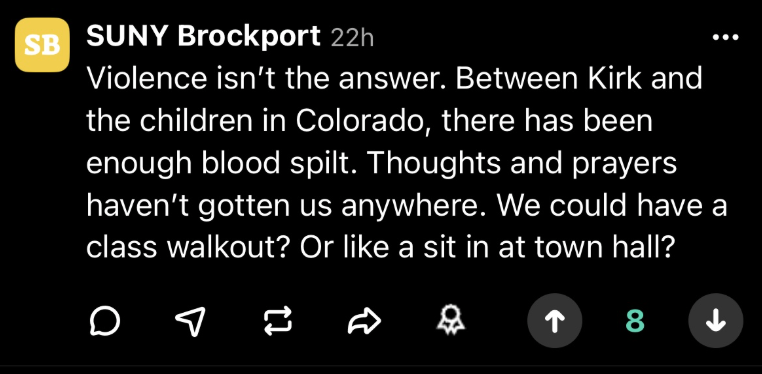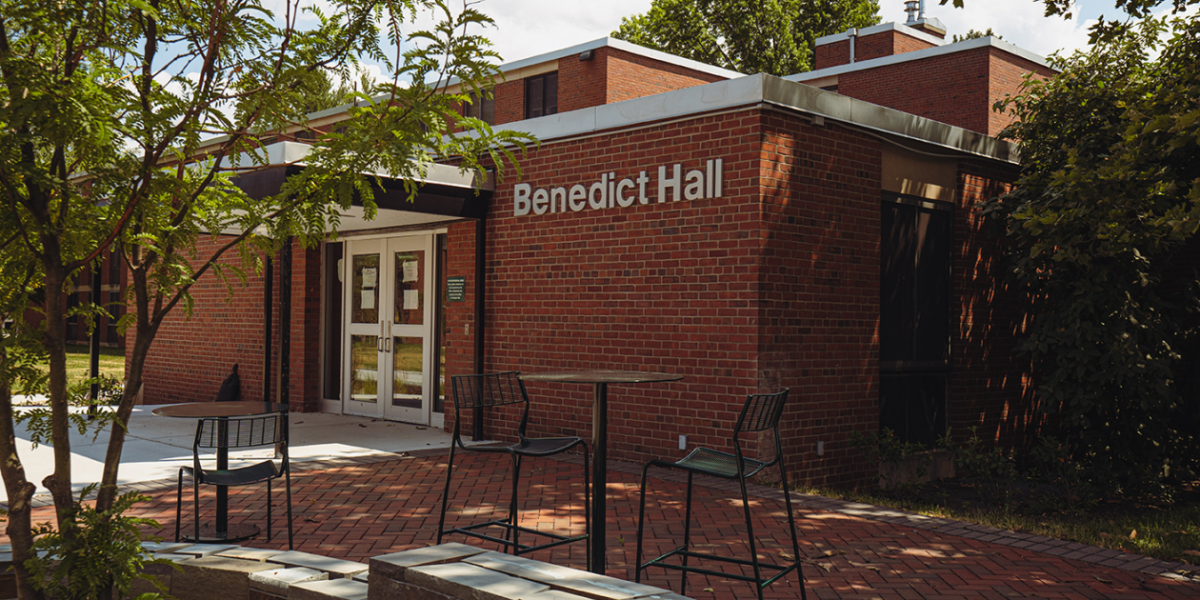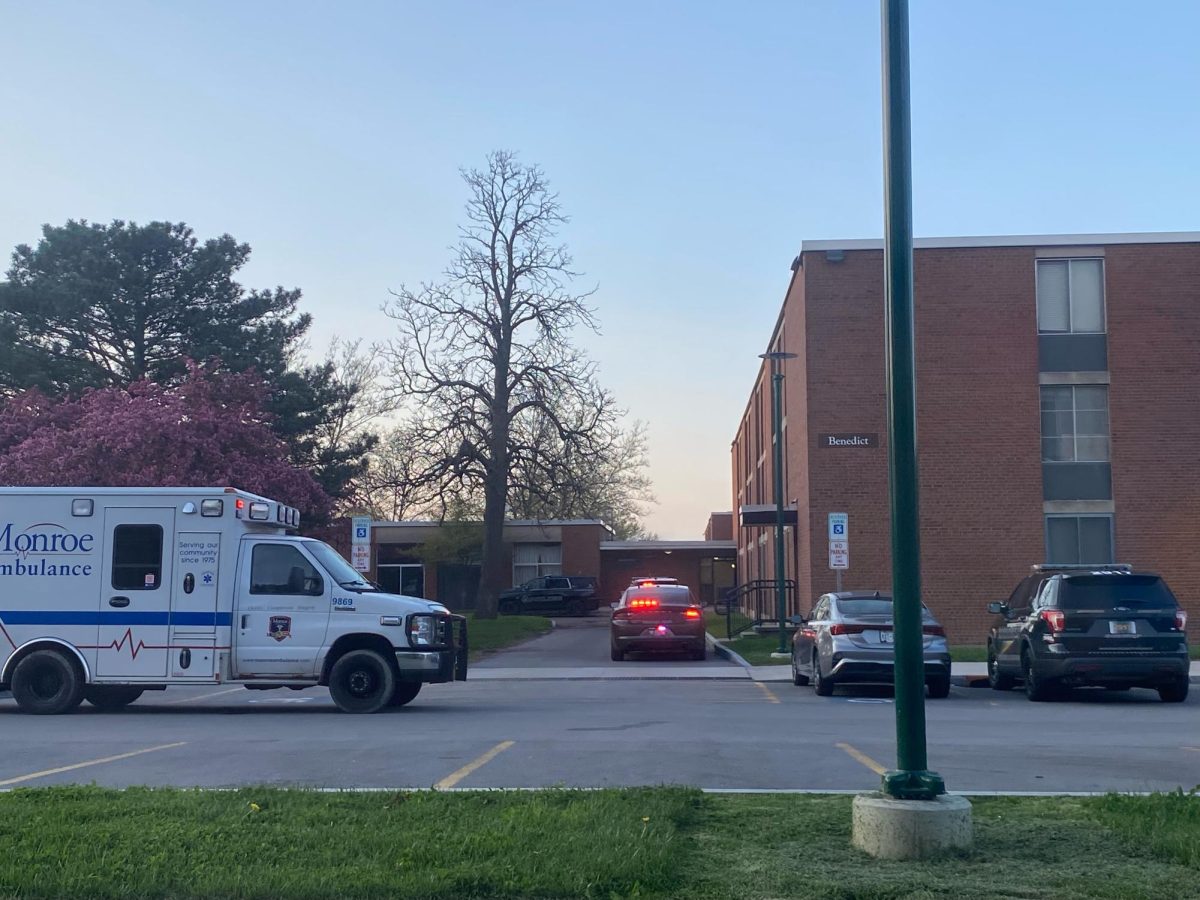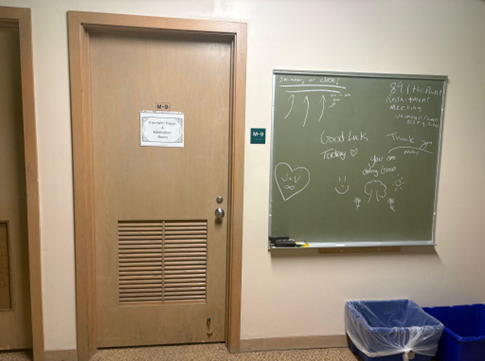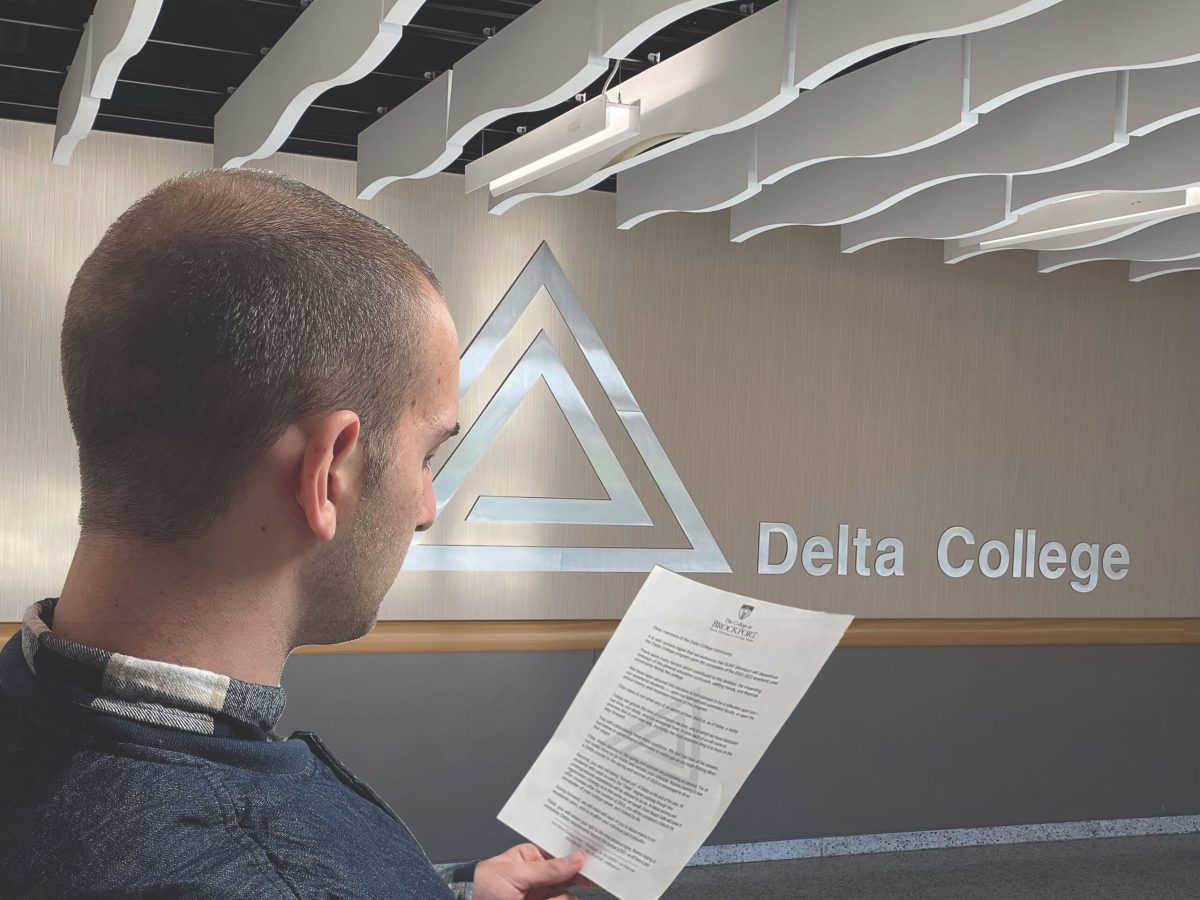A signature program of SUNY Brockport that attracts some of the college’s most dedicated scholars is celebrating its 50-year anniversary…and getting buried six feet under. The announcement that Delta College will be discontinued shocked staff and students alike, and the reasoning? It’s complicated.
Delta is a program designed to offer accepted applicants a time-shortened, more intensive college education. Students can graduate in three years instead of four, save up to $20,000 in tuition and better prepare for the professional world through this alternate approach to learning. Delta students complete 99 credits instead of the typical 120. Their general education requirements meet all of Brockport’s requirements and objectives and do so in a more concise matter. However, they are vastly different. They’re referred to as Delta Core Requirements and are geared toward the student’s specific learning interests.
If a program that is so enticing for bright students is discontinued, where are these students going to go to school instead? Probably not Brockport. Senior Giovanni Battaglia is a student in Delta College and credits his success to the program.
“I would not have come to Brockport if Delta College was not a program,” Battaglia said. “When I heard about condensed class sizes and graduating early, I was not hesitant to apply. I would not feel as confident as I do to graduate, or have a job lined up, if it hadn’t been for the opportunities I was able to take advantage of because of Delta College. When I meet incoming freshman and they say they are part of Delta, it makes me so excited because I know they will see the value in it—it is impossible not to.”
Shay Gauthier graduated from Brockport as a Delta student in 2021 and is now the Press & Social Media Coordinator for SUNY System Administration. They were able to dive into their major at Brockport immediately because of the Delta structure.
“I knew that I wanted to stay a journalism major within my first semester because I was able to fit more than one JRB class into my schedule,” Gauthier said. “It reaffirmed my professional career goals within my first semester. Delta also requires an experiential learning component, where students have to get an internship, study abroad or do something that makes them well rounded and career ready. I had an internship with WHAM-13 my freshman year of college, worked for a Women’s Magazine and worked at WBSU 89.1 The Point and got credit for all of it. All of those experiences have made my resume stand out.”
So why get rid of Delta in the first place? That’s the big question. Brockport’s enrollment has been on a decline since 2017, but Delta College’s enrollment is up. Way up. Delta accepts 75 students a year, and during the fall of 2022, they brought in a full class—and had a waiting list.
According to Provost Dr. Martin Abraham, who oversees academic affairs, the conversation about changing Delta started last spring when SUNY announced the redesign of the general education system. Interim Provost Linda Delene made the decision last spring that Brockport would move forward with a single general education program for all students, and Abraham concurred with this decision. Seeing as Delta is a program with vastly different general education requirements, they knew this would create challenges moving forward.
There was a study conducted over the course of last academic year looking at how to provide a viable alternative to accommodate Delta. There were a number of proposals put forth, and one focused on experiential learning, which pertains to internships, study abroad, service courses where students work or volunteer in the community and undergraduate research.
“Experiential learning is something that we’re trying to promote across all of SUNY Brockport, so doing that as a unique experience within Delta College doesn’t really make a lot of sense if it’s a component of what we want the Brockport experience to be for all of our students,” Abraham said.
The question as to how an experiential learning focused experience could be implemented to all students does arise, especially when the reason Delta was able to focus in on these unique aspects was because of the differences in their general education structure. Abraham also mentioned that the option of making Delta a home for undeclared majors came up, but he didn’t see how this would benefit students when “what they need as undeclared students is a better advisement model and a better approach to faculty in their majors.”
“So as we were considering the alternatives, we were really struggling to find a unique niche where Delta could provide a value add for our Brockport students,” Abraham said. “Ultimately, as we got together and I started to get engaged in this conversation, we talked to individuals across cabinet, and we recognized that we couldn’t identify a unique niche for Delta College. We made the decision that it just wasn’t going to be something that we could continue to support.”

Mathew Kotula, the director of Delta College, explained that Delta had no part in this decision and that no one from Delta was present for the President’s Cabinet meetings where this decision was made.
“I can understand the college’s desire to simplify its gen curriculum and have a consistent campus-wide gen ed program, but our position has always been that this could include Delta,” Kotula said. “We knew changes would be necessary to remain compatible with the new gen ed program, but no Delta faculty or staff had any indication the program was being considered for discontinuation. At the end of the spring 2022 semester former Interim Provost Dr. Linda Delene shared with all Brockport faculty a summary of an ad-hoc committee report on Delta College, which was conducted as part of the college’s Academic Strategic Plan. It included several recommendations for how best to integrate Delta into that plan. Heading into this year, that, to our knowledge, was the last word as to any potential programmatic changes; we had no knowledge Delta would be considered for discontinuation. The news was as abrupt for us as it was for our students.”
With Kotula willing to do anything to make this program work, students are wondering if the rationale behind the decision reflected Brockport’s current financial status.
“I just don’t think the college wants to fund the program anymore,” Battaglia said. “There have been multiple finance issues I have noticed at Brockport as a club representative and as a student with Financial Aid refunds—getting ahold of funds has become increasingly difficult with each semester. I think the college is suffering with admission rates, so they had to start looking at financial programs they can cut.”
When asked about the financial motives behind this decision, Abraham ensured they were not the primary rationale.
“Yes, there’s savings associated with doing this down the road. But that really wasn’t the primary motivation for making this happen. It really was a compilation of things that started last year with the new gen ed model that led to this as the outcome. We’re taking advantage of this from budgetary savings, but it’s not the reason for doing this,” Abraham said.
Looking at the numbers—New York State resident tuition is $288 per credit. Delta students are currently required to complete 21 credits less than other students. That’s a difference of $6,048 per student. Take the full freshman class of 75 students who enrolled in Delta this year, that brings the total to $453,600. With 185 students currently enrolled in Delta College, the total amount that Brockport would gain in tuition money by switching these students to the general curriculum equals $1,118,880. That’s over a million dollars by having 185 students take 21 more credits each.

Vice Provost Dr. Eileen Daniel wanted to reiterate that discontinuing Delta College will be a process, and they are working hard to ensure a smooth transition for current students.
“We’re not accepting new students into Delta, but all current students will finish in Delta; we’re ensuring that this year is going to be exactly the same,” Daniel said. “There will be Delta courses taught next year, and we have ways to do substitutions in others to finish. We care very much that the impact of this will be as minimal as possible.”
College Senate President Jason Morris spoke about what the senate’s general education plan recommendation to President Macpherson looks like as well as what SUNY is requiring. This plan still needs to be approved by the President in order to go into play, but the changes being made only affect the number of gen ed classes—the total number of credits a student will have to take will not change. The recommendation states that Brockport will require at least three fewer general education credits per student than they currently do, but the total will have to be at least 30.
“In order to accommodate Delta College into this plan, we would have to be able to make sure that the students in the Delta program are meeting at least the minimum SUNY gen ed requirements,” Morris said.
It’s clear that the decision to end Delta College is final, and while it is a complicated one, the implications that follow will alter the course of Brockport’s future academics.


